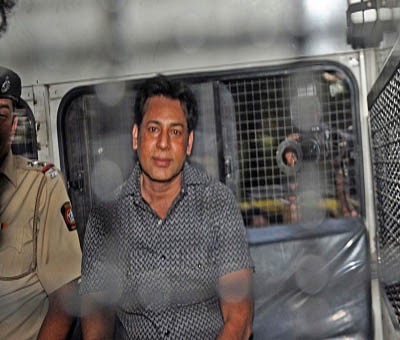
New Delhi, The Centre on Tuesday told the Supreme Court that gangster Abu Salem is a convict in Mumbai serial blasts case and he cannot dictate terms either to the court or the government.
Earlier during the day, advocate Rishi Malhotra, representing Abu Salem, had submitted that the home secretary does not have time to file an affidavit in the case, pointing at no response from the government in the matter. A bench comprising Justices Sanjay Kishan Kaul and M.M. Sundresh asked the government lawyer present in the courtroom to check whether the home secretary would make an oral statement.
The matter came for hearing again in the afternoon. Solicitor General Tushar Mehta, representing the Centre, objected to Salem's lawyer's submissions saying: "Lordship please ask him no to insist like this. He (Salem) is a convict in Mumbai serial blasts. He cannot dictate terms to the court or the government".
Justice Kaul said the court is not on this individual case, but ramifications of it. "It can impede other processes", said the bench. Mehta submitted: "Lordship please do not make such comments. It should not become a cause of concern for you in other cases. The press may report it..". The bench replied, "Let them report it, we are not bothered".
The Union home secretary failed to file an affidavit before the Supreme Court on whether India will honour the commitment, made by its deputy PM to Portugal, on limiting Abu Salem's jail term to 25 years.
After hearing arguments, the top court gave more time to Centre to file its response in the matter and scheduled it for further hearing on April 21.
On March 8, the Supreme Court asked the Union home secretary to file an affidavit, whether the Centre is committed to adhere to the assurance given by the then deputy Prime Minister L.K. Advani to Portugal authorities, to not incarcerate gangster Abu Salem for more than 25 years while seeking his extradition.
The top court asked the Centre to make its stand clear on the issue. It emphasised that not abiding by the assurance made to the Portugal authorities, could have wider ramifications and it may create problems while seeking extradition of fugitives from other countries. The top court said it is not happy with the CBI's reply in the matter and sought a response from the home secretary in three weeks.
The CBI, in its affidavit, has told the top court that an Indian court is not bound by the assurance given in 2002 by the then deputy prime minister to the courts in Portugal that gangster Abu Salem would not be imprisoned beyond 25 years after his extradition to India.
Malhotra, representing Salem, argued before the bench that as per the principle of reciprocity in Portugal the courts cannot award a sentence for more than 25 years. He added that based on the principle of reciprocity, the government of India had given a solemn sovereign assurance to the Portugal courts that in case Salem is permitted to be extradited back to India, he will not be given punishment for more than 25 years.


.jpeg)

